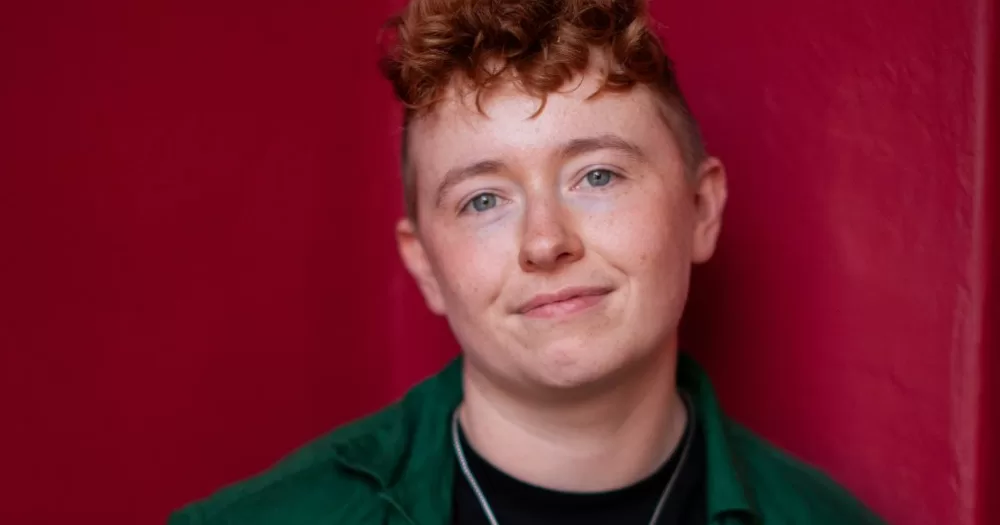This Friday, Irish voters are being offered the chance to vote in a pair of referendums which have been presented as a positive move for gender equality in Ireland. The first referendum will expand the Constitutional definition of ‘Family’ as one which is shaped by durable, meaningful relationships, and not solely by the institution of marriage. The second referendum will replace an embarrassing fragment of our Constitution which emphasises the importance of a mother’s work within the home with gender-neutral language.
As with Repeal and Marriage Equality, the referendum campaigns and ultimate outcomes are context-specific, shaped by how Irish voters see the country at this moment in time. The Marriage Equality referendum was not solely about marriage – it was about rejecting a history of homophobia. The Repeal referendum was not just about abortion – but about trying to heal from centuries of abuse and institutionalisation perpetrated against women in Ireland. Those campaigns were characterised by months of divisive debates; progressive, queer, and feminist groups versus conservative, often religious organisations, attempting to maintain a grip on power.
That dynamic, the push-pull of progress against conservatism, is present in Friday’s referendums. The groups who pushed for a No in 2018 and 2015 are coming out for two No votes this Friday. This time they’re joined by the far-right, aggressive and mobilised post-Covid, who are spreading racist and homophobic misinformation about both votes. Their messaging might make many LGBTQ+ voters cautious to vote No in either referendum – few of us want to be counted alongside those groups. Amid these lies, it’s important to educate ourselves and consider the nuance of each referendum separately.
View this post on Instagram
A Yes in the Family referendum represents a positive change for anyone whose family doesn’t fit what we’re used to seeing in picture books. Queer families come in all shapes and sizes. Our community holds single parents, children born to married couples, children co-reared by parents, their partners, and step-parents, and many more co-parenting and queer-parenting arrangements. We have queer young people, estranged from their birth families, who may seek a home with other family members or guardians, and many queer children raised by single parents. We have LGBTQ+ couples of all ages, who, even though we can now marry, might have opted not to enter into an institution which for a long time was oppressive to gays and women.
Long before the State recognised our relationships, queer families were making commitments and making do in ways straight people might see as radical, but for our community was perfectly natural. Voting Yes to recognise a range of family makeups and identities offers us a little more protection, a little more equality, without marriage as the defining factor. It’s a modernising step which will protect children and provide dignity to the many committed relationships in our society.
The referendum on Care was also intended as a modernising vote, one which would further equality for women in Irish society and enshrine the value of care provided to children, elderly people, disabled people, and anyone else in need. The Citizens’ Assembly recommendations emphasised the role of the State in providing that care, not just within the family, but also within the wider community.
The text we’ve been asked to vote on this Friday is different, only stating that the State will “strive” to support care provided by family members. Human rights groups including FLAC have pointed out that this provision remains implicitly sexist, as care provided within the home is disproportionately the responsibility of female family members. Family carers are disappointed with language that does not adequately drive home the responsibility of the State to support meaningful care; many have been struggling without the resources they need and are at breaking point.
Disabled individuals, civil society groups, and academics have also called on voters to vote No in the Care referendum. Emphasising family care alone disempowers disabled people. It limits their options in terms of the care they can access and denies them the choice to live independently, with all the supports they may need from the State. In the design of this referendum, disabled people have been excluded as passive participants in our Constitution. We should be grateful to the disabled activists who have taken the time and effort to explain why a Yes vote adds insult to injury.
There ought to be a natural solidarity between disabled people and LGBTQ+ people, particularly trans and non-binary people. We each experience lifelong barriers in accessing adequate healthcare, we are subject to family and State interference in our bodily autonomy and our relationships, and we face inequality and isolation as we move through school, work, and the public realm. Trans and non-binary people have been left behind, at points, by feminist groups in the drive for progress, and disabled people now run the risk of being abandoned by what is being presented as a progressive, feminist vote.
They deserve better. The LGBTQ+ movement doesn’t always do right by our disabled siblings. We have often let them down or not considered their needs in our activism. They have asked us to stand with them this Friday, to show allyship by voting No, and LGBTQ+ voters should answer that call.
View this post on Instagram
© 2024 GCN (Gay Community News). All rights reserved.
Support GCN
GCN is a free, vital resource for Ireland’s LGBTQ+ community since 1988.
GCN is a trading name of National LGBT Federation CLG, a registered charity - Charity Number: 20034580.
GCN relies on the generous support of the community and allies to sustain the crucial work that we do. Producing GCN is costly, and, in an industry which has been hugely impacted by rising costs, we need your support to help sustain and grow this vital resource.
Supporting GCN for as little as €1.99 per month will help us continue our work as Ireland’s free, independent LGBTQ+ media.
